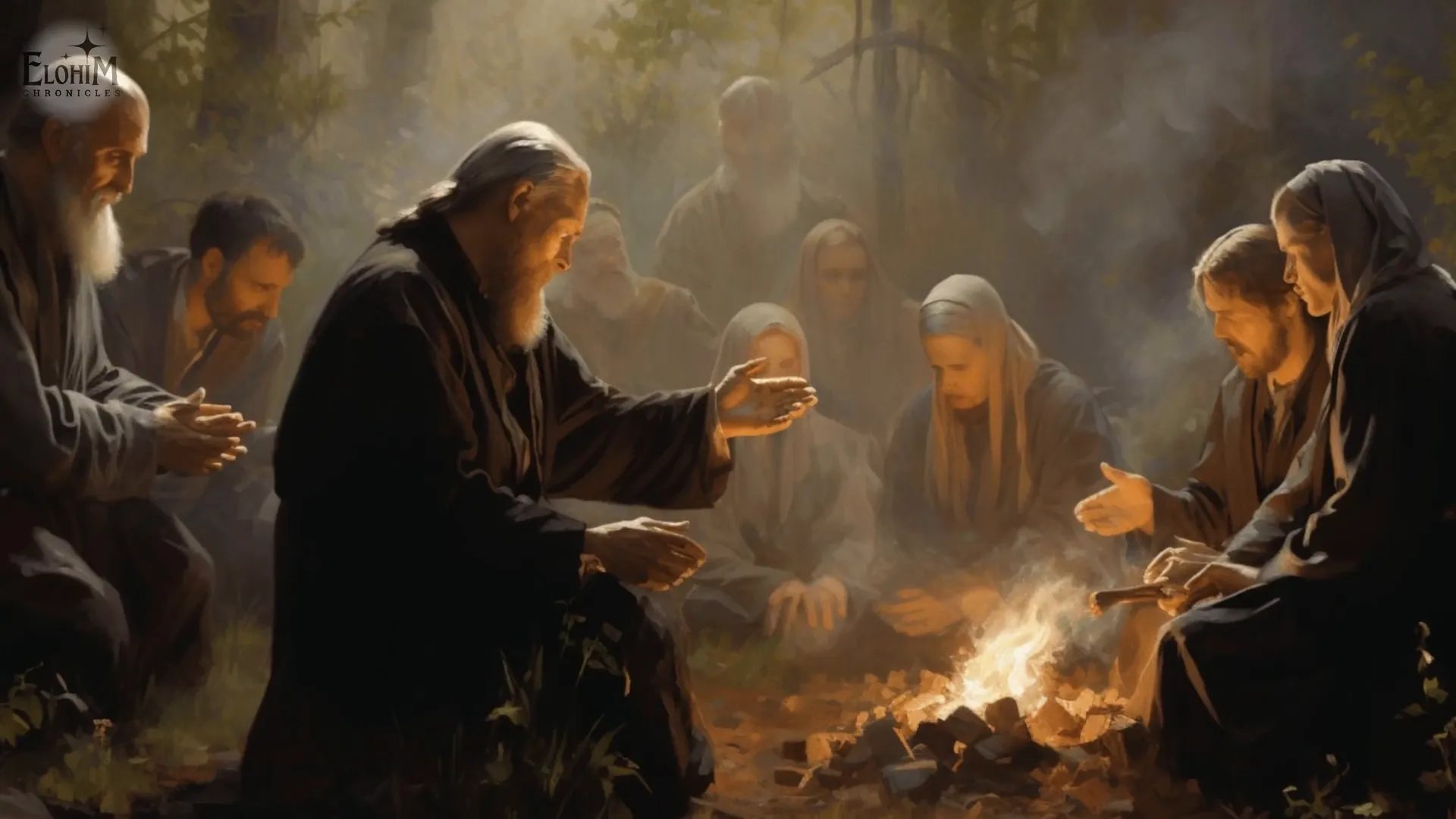Should Christians Celebrate Christmas? Unpacking the Truth Behind the Holiday
As December envelops us in its festive glow, the question arises: Should Christians celebrate Christmas? This blog delves into the origins, traditions, and deeper meanings of Christmas, exploring its significance for believers and the potential pitfalls of modern celebrations.
The Festive Season: A Double-Edged Sword
The festive season evokes a spectrum of emotions. For many, it signifies joy, family gatherings, and cherished traditions. Yet, for others, it can be a source of stress and financial strain. Balancing the joy of celebration with the pressures of consumerism can be challenging.
As we embrace this time of year, it’s essential to reflect on what truly matters. Are we celebrating the birth of Christ, or are we caught up in the whirlwind of holiday shopping and parties? This duality prompts a deeper inquiry into our motivations and priorities during the season.
The Origins of Santa Claus
Santa Claus, a figure synonymous with Christmas, has a rich and complex history. Originating from the 4th-century Christian bishop Saint Nicholas, he was celebrated for his selfless acts of giving. Over the centuries, this figure transformed through cultural influences into the modern Santa Claus we recognize today.
In the Middle Ages, Saint Nicholas was revered across Europe, with his feast day celebrated on December 6th. The Dutch version, Sinterklaas, was brought to America by settlers in the 17th century, evolving into the jolly, red-suited Santa known today. This transformation raises questions about the authenticity and relevance of such a character in a celebration that should focus on Christ.

The Cost of Deception: Is It Wrong to Celebrate?
The portrayal of Santa Claus can create a dichotomy for Christians. While the character embodies generosity and joy, his association with Christmas can overshadow the true meaning of the holiday. Children grow up believing in a whimsical figure, but what happens when they discover the truth? This revelation can lead to doubts about other aspects of the holiday, including its religious significance.
It’s crucial to consider how we frame Santa in our celebrations. Rather than allowing him to dominate the narrative, we can reimagine Santa as a fun character that complements the central message of Christ’s birth. This approach not only preserves the magic of childhood but also reinforces the true focus of the season.
The Apostles and the Birth of Jesus
Interestingly, the early apostles did not celebrate Christmas. Their emphasis was on the death and resurrection of Jesus, which they viewed as the cornerstone of their faith. The birth of Christ, while significant, served as the beginning of a much larger story focused on redemption.
This shift in focus raises the question: why has Christmas overtaken Easter in popularity? The answer may lie in the allure of a festive narrative that is more accessible and palatable. While Easter invites reflection on sacrifice and redemption, Christmas offers a narrative of joy and goodwill, making it more widely celebrated.
Easter vs. Christmas: Understanding the Focus
The contrast between Easter and Christmas highlights the different aspects of the Christian faith. Easter, with its themes of sacrifice and resurrection, challenges believers to confront the realities of sin and redemption. In contrast, Christmas often feels like a celebration of life and hope, albeit one that can become overly commercialised.
As we navigate the holiday season, it’s essential to remember that while the birth of Christ is a beautiful story, it cannot stand alone. The significance of the manger is intertwined with the cross and the resurrection. Reflecting on this connection can deepen our understanding of the season and guide our celebrations.
Traditions Outside the Bible: Hanukkah as a Case Study
Traditions outside the canon of scripture can still hold significant meaning. Take Hanukkah, for example. Although it is not mentioned in the Old Testament, it was celebrated by Jesus, illustrating that traditions can enrich faith even when not explicitly commanded.
This raises an important question for Christians considering Christmas: can this holiday, despite its non-biblical origins, serve as a meaningful opportunity to reflect on God’s greatest gift? If Jesus acknowledged the value of Hanukkah, perhaps Christmas can also be redeemed as a time for spiritual reflection and gratitude.
The Date of December 25th: A Historical Perspective
Many believe that December 25th was chosen for Christmas to coincide with pagan festivals. However, historical records indicate that early Christians may have celebrated Christ’s birth on this date before any association with paganism. This perspective alters the narrative, suggesting that the date could serve as a counter-celebration to pagan practices rather than a borrowing from them.
This historical understanding encourages Christians to view Christmas as an opportunity to celebrate their faith rather than a compromise with pagan traditions. The focus should remain on the significance of Christ’s birth and what it represents for humanity.
Christmas Symbols: Pagan Origins or Victorian Invention?
The symbols commonly associated with Christmas, such as trees and mistletoe, often evoke questions about their origins. While some argue they stem from ancient pagan rituals, many of our current Christmas traditions were actually popularized during the Victorian era.
This revelation invites believers to reconsider the meaning behind these symbols. Rather than allowing their potential pagan roots to deter us, we can choose to imbue them with Christian significance, celebrating the birth of Christ in a way that honors tradition while focusing on faith.

The Significance of Jesus’ Birth: More Than Just a Date
The birth of Jesus is a pivotal moment in history, representing God’s profound love for humanity. While the exact date may be uncertain, the essence of the event is what truly matters. It marks the entrance of God into our world, offering hope and redemption.
As Christians, reflecting on this miraculous birth can deepen our faith. It is not merely a date on a calendar; it symbolizes God’s promise and the beginning of His plan for salvation. Understanding this significance can reshape how we celebrate, steering our focus toward the deeper meaning of Christmas.
Reframing Santa Claus: A Fun Fictional Character
Santa Claus, a character that captures the imagination of children, can be reinterpreted in a way that aligns with Christian values. Instead of allowing Santa to overshadow the true meaning of Christmas, we can embrace him as a whimsical figure that brings joy without detracting from the celebration of Christ’s birth.
By presenting Santa as a fictional character, we can maintain the magic of childhood while encouraging a focus on generosity and kindness, values that resonate with the teachings of Christ. This approach allows families to enjoy the festive spirit without compromising their faith.

Redemption and Cultural Celebrations
Celebrating Christmas can serve as a powerful reminder of God’s ability to redeem cultural practices. Just as He transforms lives, He can also redeem traditions that may not have originated from biblical roots. This perspective invites Christians to engage with the holiday in a way that glorifies God.
When we celebrate Christmas, we can choose to focus on the aspects that reflect Christ’s love and grace. This means prioritising worship, family, and acts of kindness over materialism and consumerism. In doing so, we can reclaim the holiday as a time of spiritual reflection and gratitude.
Reflecting on Our Traditions
As we approach Christmas, it’s crucial to evaluate our traditions. Do they enhance our faith, or do they distract us from it? This reflection can lead to a more meaningful celebration that aligns with our beliefs. If certain customs no longer resonate, we should feel free to adjust or let them go.
Engaging in conversations with family and friends about the meaning of our traditions can also foster a deeper understanding of the holiday. This dialogue can help us identify which practices truly honour Christ and which may need rethinking.
The True Spirit of Christmas
The essence of Christmas lies in celebrating the incredible truth of the incarnation. It’s a time to marvel at God’s love, share His grace, and illuminate the world with His light. This spirit can be reflected in our actions, whether through generous giving, acts of service, or simply sharing the message of hope with others.
Celebrating with purpose means prioritising our relationship with Christ and allowing that relationship to shape our holiday experience. By doing so, we can embody the true spirit of Christmas and become beacons of His light in a world that often loses sight of it.
Conclusion: Celebrating with Purpose
This Christmas, let us focus on the joy that comes from knowing Christ and the incredible gift of His birth. Instead of getting lost in the chaos of consumerism, we should strive to celebrate with humility, gratitude, and generosity. This approach will not only enrich our own faith but also inspire those around us.
As we gather with loved ones, may we remember the true meaning of Christmas and share that message with others. Let us honour the one who gave everything for us and spread His light in a world yearning for hope.
FAQ: Should Christians Celebrate Christmas?
Many Christians grapple with the question of whether to celebrate Christmas. The answer lies in how we choose to celebrate. If our focus is on Christ and His message of love, then Christmas can be a meaningful time of reflection and joy.
Ultimately, the decision to celebrate should come from a place of faith, recognising the significance of Jesus’ birth and its implications for our lives. By centring our celebrations on Christ, we can honour the holiday’s true purpose and share its joy with others.



